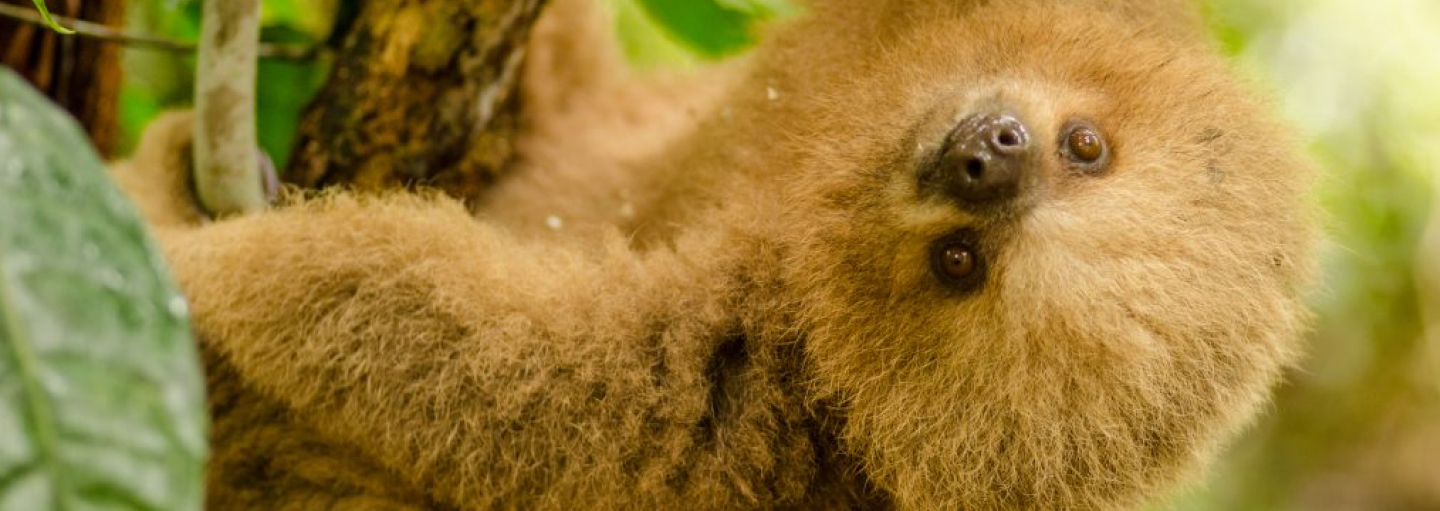The coolest (and slowest) mammal on the planet!
10/21/2019
In honor of International Sloth Day, this month’s mammal is one of the coolest (and slowest) on the planet. Join us in celebrating the adorable and lethargic sloth.
Sloths inhabit the rainforest of Central and South America. They spend much of their lives in the canopy, hanging from branches with a powerful grip aided by their long claws. Sloths even sleep in trees – up to 15-20 hours every day! At night, they eat leaves, shoots, and fruit, and get almost all of their water from juicy plants.
These mammals are the world’s slowest, so sedentary that algae grows on their furry coats. Though they are slow on land, sloths are surprisingly good swimmers. They sometimes fall directly from trees into rivers and stroke efficiently with their long arms.
Sloths are identified by the number of long, prominent claws that they have on each front foot. Three-toed sloths have an advantage that few other mammals possess: they have extra neck vertebrae that allows them to turn their heads some 270 degrees.
These creatures are integral components of the rainforest. Species in the Amazon foster a symbiotic relationship with a species of algae found only on sloths! The relationship is beneficial to both: the algae gains shelter and water in the animal’s hair, while providing the sloth with camouflage, protecting it from predators. Algae aren’t the only opportunists taking up residence in sloths – recent research has discovered that a number of fungi inhabiting sloths have disease-fighting properties.

Algae gives the sloth’s hair a green tint that is useful camouflage in the trees.
Though not all sloths are endangered, some of the six species are threatened by habitat loss. Deforestation in the tropical forests of South and Central America jeopardize the trees sloths rely on for food and shelter.
Three-toed sloths reside in many of Nature and Culture’s project areas in South America. We’re currently working in Esmeraldas, a province in the Choco wet forest ecosystem in Ecuador, so the sloth’s can keep hangin’!
Celebrate #SlothDay and your favorite slow mammal. Fight deforestation today.

Brown-throated sloth spotted by a Nature and Culture staff member in Esmeraldas.
Did you catch last month’s mammal? Check out the world’s largest otter species, found in the Amazon.


